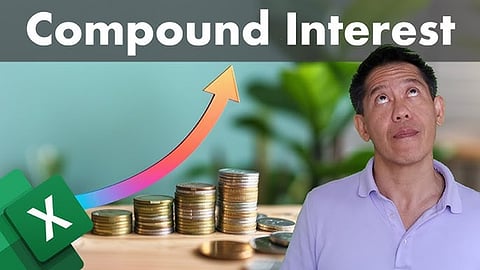Compound Interest for Beginners: What it is and How it Works?
Understanding compound interest is essential for financial planning. Compounding is a powerful concept that helps your money grow over time. In simple terms, compounding happens when you earn interest on both the principal and the interest that accumulates over time. This can have an exponential effect on your wealth if used wisely.
In this article, we’ll look at the basics of compounding, how it works, how you can use it to your advantage in investments like mutual funds, and how to understand this concept with the help of a compounding calculator.
What is compound interest?
In simple interest, you earn interest only on your principal. With compound interest, you earn interest on the initial amount you invested as well as the interest it accumulates. This “interest on interest” makes your investment grow at an accelerated rate over time. The longer you leave your investment untouched, the more powerful compounding becomes.
Let's break it down with a quick example. Suppose you invest Rs. 10,000 for 10 years at an annual interest rate of 10%. If you were to calculate simple interest, you would earn Rs. 1,000 each year. So, at the end of 10 years, you would have earned Rs 10,000 in total and your final corpus will be Rs. 20,000.
With compound interest, in the first year, you will earn 10% on the principal, taking your total investment value to Rs 11,000. In the second year, you will earn 10% on Rs. 11,000 (principal plus interest), taking the total value to Rs 12,100. In the third year, you will earn 10% on Rs. 12,100, and so on.
What makes compounding so powerful is that it picks up pace over time, as the base amount keeps growing. When you invest for a longer period, you can see exponential growth. A compounding calculator can help you see this potential impact of compounding on your investments. All you need to do is enter your investment amount, tenure and rate of interest, and the calculator gives you instant estimates.
Compounding in mutual funds
Mutual funds also benefit from the power of compounding – though it’s not a fixed interest but variable returns that can potentially multiply over time.
In mutual funds, growth potential comes from two sources: capital appreciation and dividends. As the value of your mutual fund units increases, your investment grows. Subsequently, additional potential returns are then earned on this increased investment value. If dividends are paid out, they can also be reinvested to buy more units, which also increases your investment base.
To optimise the potential impact of compounding on your investments, staying invested for the long term is important. Even though mutual funds may show ups and downs in the short term, markets tend to recover and grow in the long term, allowing you to benefit from compounding.
Compounding in SIP investments
Systematic Investment Plans (SIPs) are a convenient way to invest affordably in mutual funds. An SIP investment plan allows you to invest a fixed amount of money at regular intervals (such as monthly) in a mutual fund. Over time and with the power of compounding, even affordable instalments have the potential to build wealth in the long term.
Benefits of compounding
Here’s a quick look at the main benefits of compounding:
Boosts long-term growth: Compounding accelerates the growth of your investment. The longer you invest, the higher your returns can be due to the compounding effect.
Builds wealth gradually: Compounding can turn small investments into a large sum if you give it enough time. Even a modest investment can grow significantly with regular compounding.
Works with regular contributions: Whether you are investing a lump sum or through SIPs, compounding enhances your return potential and lets your money work for you.
Encourages disciplined investing: Since compounding takes time to show significant results, it promotes a habit of long-term investing.
Important tips for making the most of compounding
To get the best out of compounding, here are a few essential tips:
● Start early: The sooner you start investing, the more time compounding has to work.
● Stay invested: Avoid withdrawing your investment prematurely. Staying invested for a long time gives your money more opportunities for compounding.
● Invest regularly: Consistent investments, like SIPs, can help you build wealth over time and take advantage of compounding even with small amounts.
● Reinvest returns: Reinvesting any dividends or returns back into the investment will keep the compounding effect working for you.
As we can see, compounding is a powerful concept that can significantly grow your wealth over time. By investing in options like mutual funds or SIPs, you can benefit from the magic of compounding and achieve your financial goals. Remember, the key to successful compounding is time. The earlier you start and the longer you stay invested, the greater your potential returns can be.
Mutual Fund investments are subject to market risks, read all scheme-related documents carefully.
Disclaimer: This article is published in association with Bajaj Finserv and not created by TNM Editorial.

